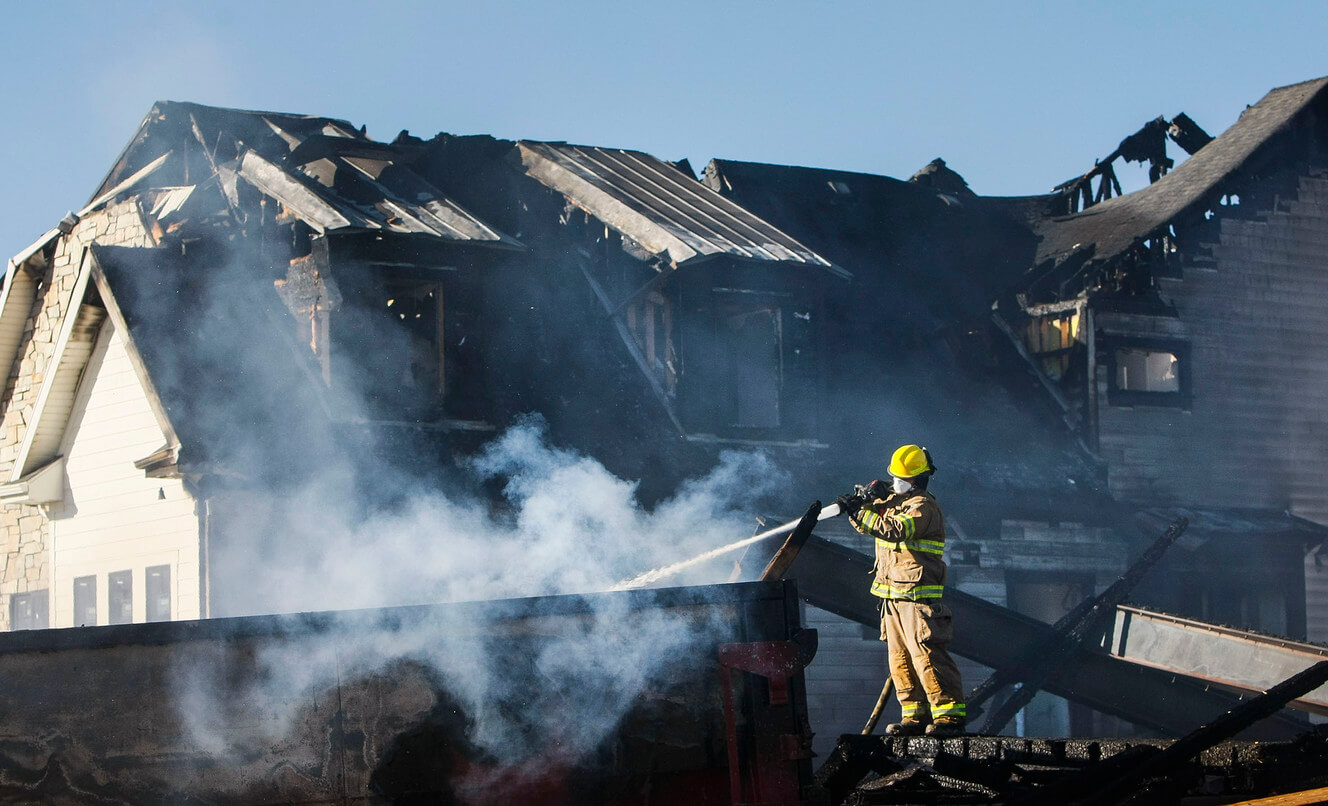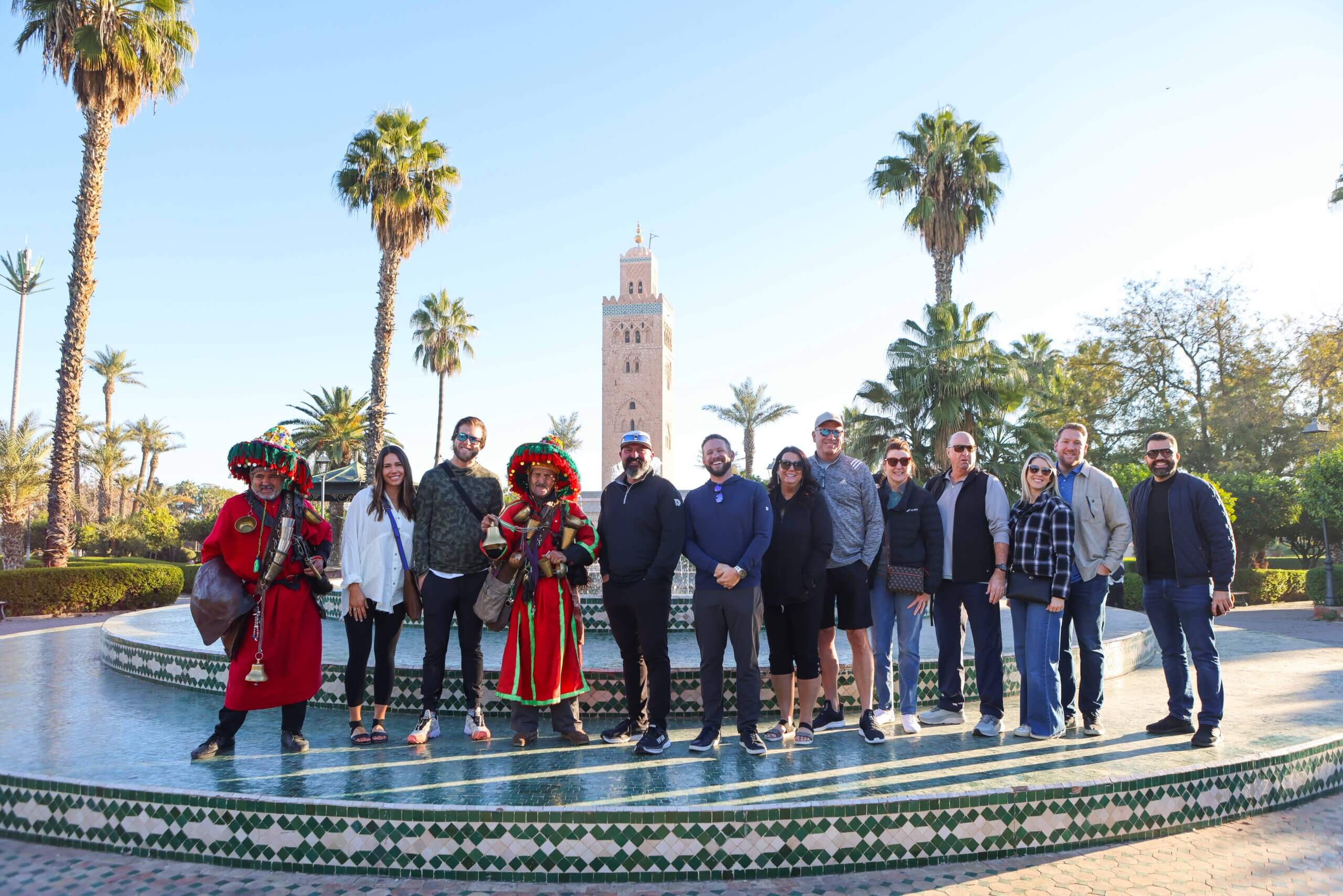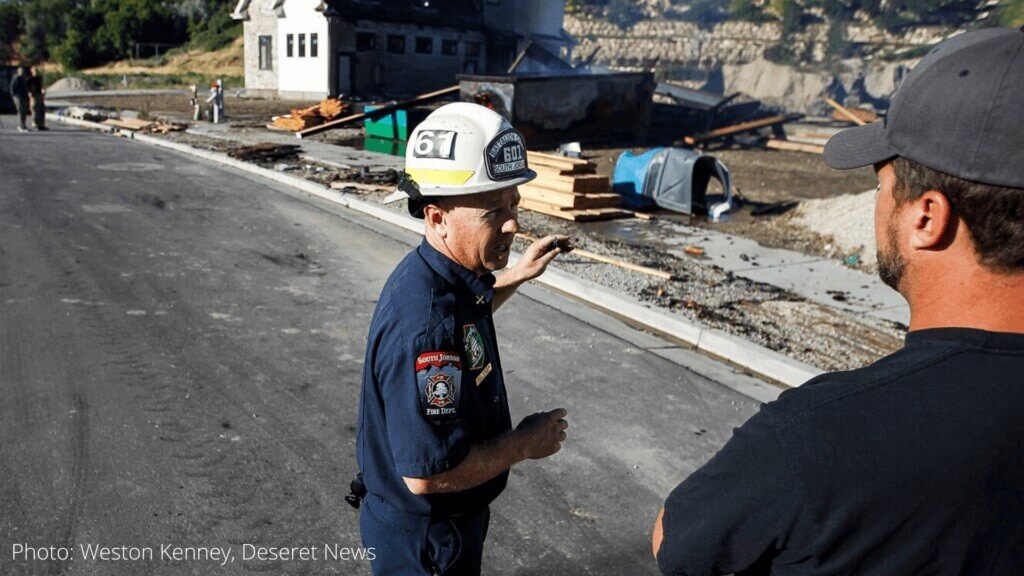
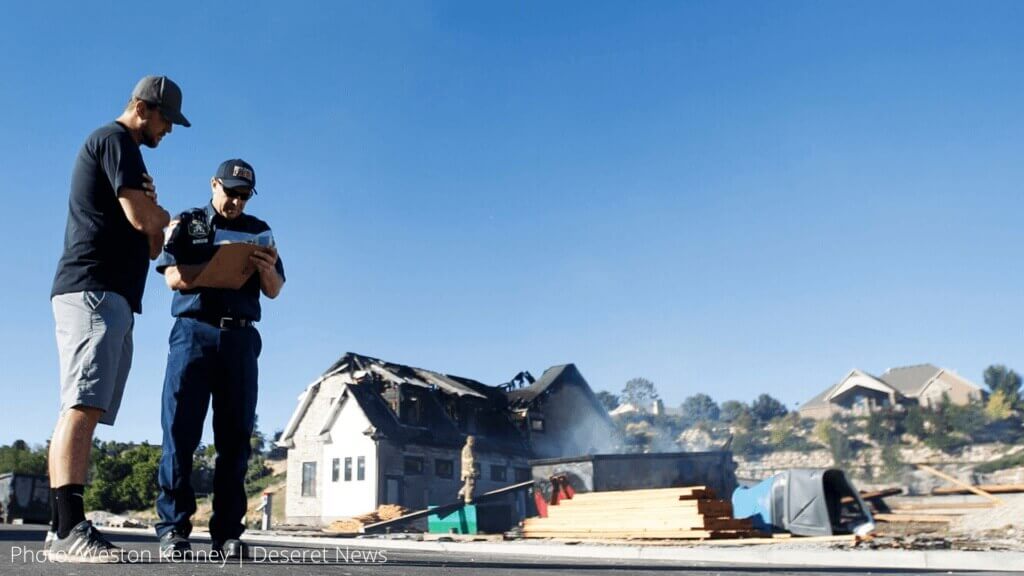
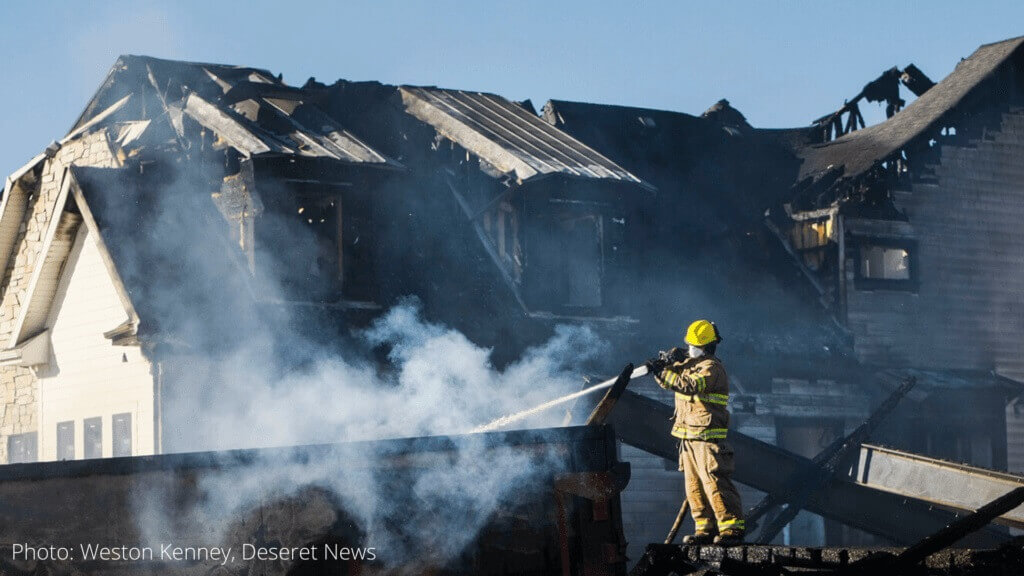
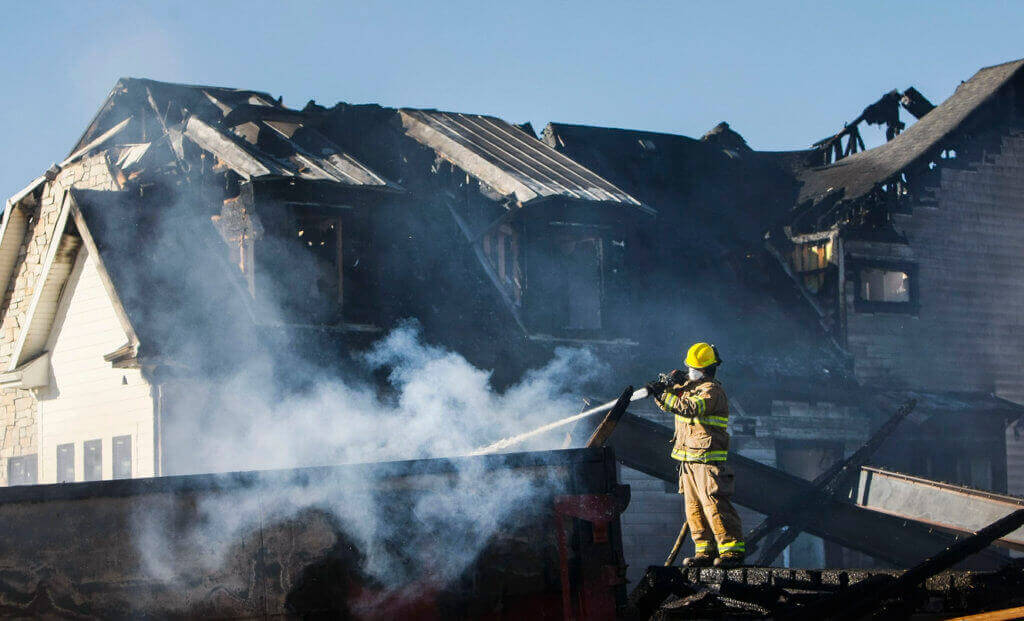
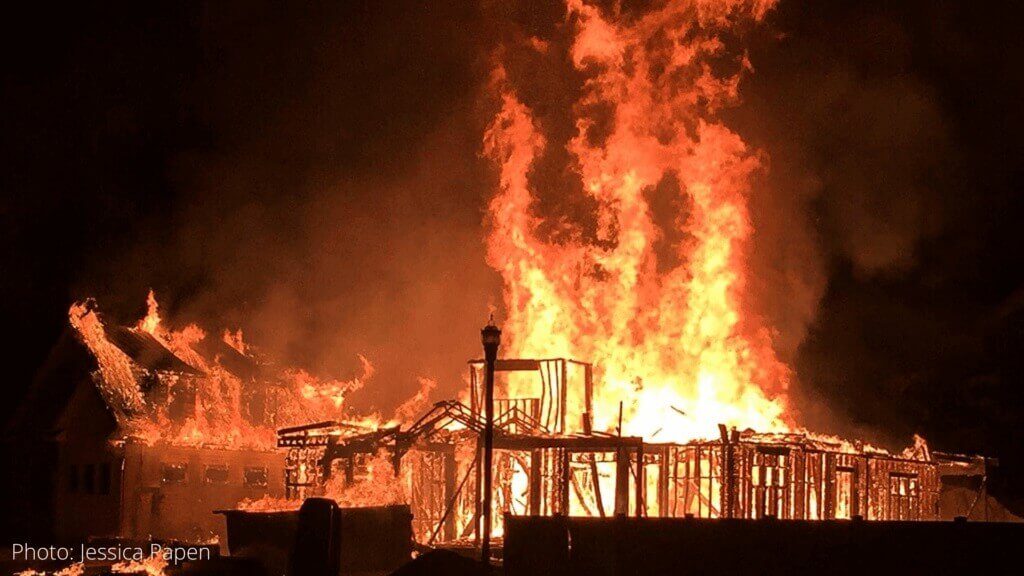
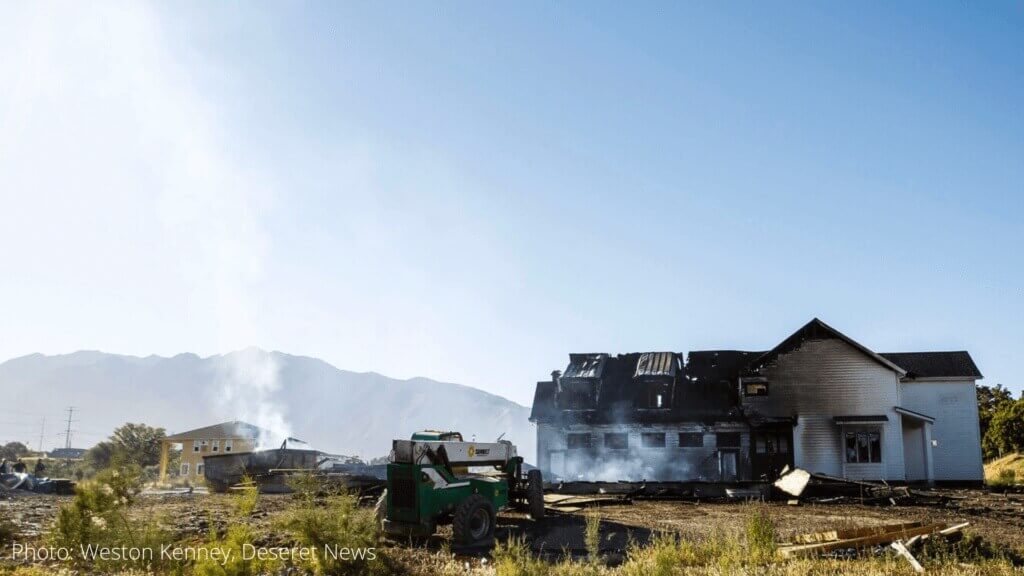
In 2016, my brother (Rick Lambert, CEO of Destinations) and I were building new homes right next to each other. Mine was nearly complete with just a few finishing touches left, and his house had just finished being framed. Life was good!
But life has a way of throwing curveballs at you. On a late summer evening, a suspicious fire broke out in a construction dumpster, and Rick’s home blazed like a tinderbox. The heat was so intense and the flames so high, my house next door was taken too.
It’s amazing to go through an experience like that. The excitement of seeing each phase of construction completed and our dream house becoming a reality turned to disbelief as we watched it go up in flames. All the raw emotions like sadness, despair, anger, and resentment swirled around us in a cloud of uncertainty. How did this happen? What would we do next? We have insurance, right? As all these questions and emotions bombarded me, a single, very important thought hit me: Our kids are home safe and asleep in their beds. Everyone I care about is OK. We can rebuild. Thankfully too our friends and future neighbors and the crews of the South Jordan City Fire Department were safe. They really did the best they could.
After the fire, Rick and I resolved to keep in mind one very important principle in dealing with this situation:
GRATITUDE: “Gratitude unlocks the fullness of life. It turns what we have into enough, and more. It turns denial into acceptance, chaos to order, confusion to clarity. It can turn a meal into a feast, a house into a home, a stranger into a friend.” – Melody Beattie
Just a few years ago, Psychologists Dr. Robert Emmons of the University of California at Davis and Dr. Michael McCullough of the University of Miami published a study in 2015 that looked at the outcomes of practicing gratitude. One-third of the subjects in the study were asked to keep a daily journal of things that happened during the week for which they were grateful. Another third was asked to write down daily irritations or events that had displeased them. The last third of the group was asked to write down daily situations and events with no emphasis on either positive or negative emotional attachment. At the end of the 10-week study, each group was asked to record how they felt physically and generally about life.
The gratitude group reported feeling more optimistic and positive about their lives than the other groups. In addition, the gratitude group was more physically active and reported fewer visits to a doctor than those who wrote only about their negative experiences.
In addition to this, neurological studies have recorded that gratitude activates the hypothalamus. The hypothalamus is located at the base of the brain and regulates hormones responsible for many critical functions, such as body temperature, emotional responses, and functions like appetite and sleep. One of the neurochemicals associated with the parts of the brain affected by gratitude is dopamine, a pleasure hormone. Gratitude FEELS GOOD!
Summed up, the power of gratitude has the power to rewire the brain and make us happier, healthier, and more fulfilled people.
And speaking more on brains, the geniuses at Harvard have listed some really great ways to cultivate an attitude of gratitude:
Write a thank-you note. You can make yourself happier and nurture your relationship with another person by writing a thank-you letter expressing your enjoyment and appreciation of that person’s impact on your life. Send it, or better yet, deliver and read it in person if possible. Make a habit of sending at least one gratitude letter a month. Once in a while, write one to yourself.
Thank someone mentally. No time to write? It may help just to think about someone who has done something nice for you, and mentally thank the individual.
Keep a gratitude journal. Make it a habit to write down or share with a loved one thoughts about the gifts you’ve received each day.
Count your blessings. Pick a time every week to sit down and write about your blessings, reflecting on what went right or what you are grateful for. Sometimes it helps to pick a number—such as three to five things—that you will identify each week. As you write, be specific and think about the sensations you felt when something good happened to you.
Pray. People who are religious can use prayer to cultivate gratitude; thanking God daily for blessings great and small can create a thankful frame of mind to meet life’s challenges.
Meditate. Mindfulness meditation involves focusing on the present moment without judgment. Although people often focus on a word or phrase (such as “peace”), it is also possible to focus on what you’re grateful for (the warmth of the sun, a pleasant sound, etc.).
As Thanksgiving is upon us, there’s no better time for all of us to start being more grateful. In the case of my brother and me, gratitude didn’t come easy. Staring at the rubble of our houses, wading through insurance and city red-tape, never finding the culprit, and having to start over—even having to dig new foundations, we had to come back time and again to the blessings in our lives. It took work, and we weren’t perfect at it as we went through this trial. But when we were at our best, it was when the gratitude dial was turned way up.
Most of all we are so grateful for the members of the Destinations Team that helped our business thrive so that we could focus on this personal trial. We couldn’t have done it without you, and for that, we will always be grateful! We’re grateful for loyal clients and the scores of kind emails, gifts, words of encouragement and continued loyalty. Without that, none of this would be possible.
Our houses have been rebuilt, and they are everything we dreamed they’d be. Maybe even more because of what we went through to finally call them home. Looking back, we can truly say that gratitude saved us from the fire.
PHOTO CREDITS: DESERET NEWS



